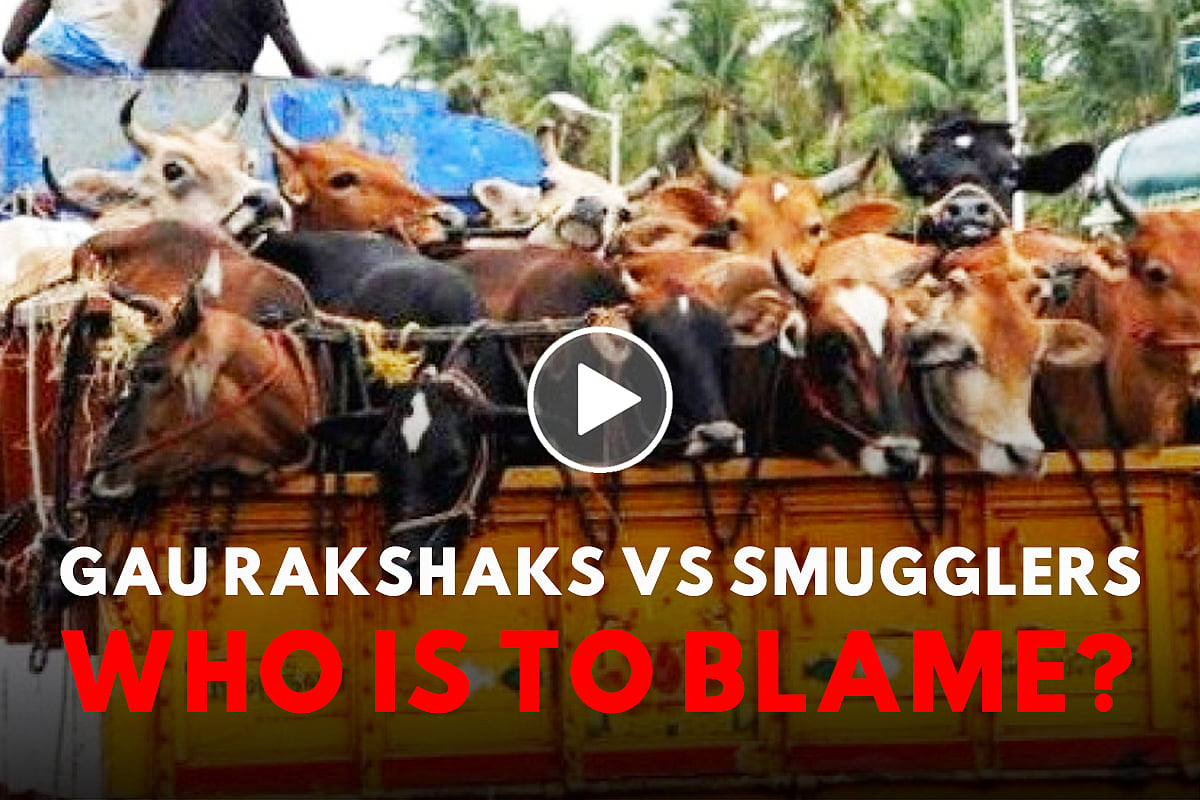
How Media Has Read The Cow Vigilantism-Muslim Lynching Problem All Wrong
Transcript:
Cow vigilantism has remained one of the hot-button issues for nearly all the years of the Modi government. People in the media and regular folks on social media platforms have highlighted, discussed, and debated gau rakshaks, a label for individuals who take the law into their hands and deliver mob-like justice for protection of their cattle.
Closely related to the issue of cow vigilantism has been the lynching of Muslims, which is also something we’ve seen happen over the years.
But more people than are qualified have had their say on this matter over the years. Predominantly, the cow issue has been linked directly with the Modi government. The media, the opposition, as well as many in the activist community have rallied against the government on the basis of certain incidents.
And it sadly smacks of opportunism for the media to project, for instance, some kind of a long-standing communal disharmony when there may be none.
However, recently, Ruchir Ferrero Sharma, who generally writes on public policy and international affairs, offered a fresh take on the matter in his story for Swarajya. His insight is a good addition to the discourse. Let me explain.
According to Sharma, what we see as the twin problem of cow vigilantism and Muslim lynching is actually a mob justice and meat mafia problem.
Now is that just a cosmetic change? Not really.
It brings into the spotlight the plight of the rural poor in India, who are across the board often the victims, rather than apportioning victimhood to people based on religion. It puts the state apparatus in the dock for the cow issue and looks at it largely as a law and order problem.
The insight is illuminating because it allows us to go to the root of the problem and see where the problem arises, rather than combat the symptoms alone.
So, what is the root cause?
It has to do with a system that does not serve the poor the way it does the rich.
In cow vigilantism cases, we generally have two players -- those who rear cattle and want to protect it and those who trade in cattle, often thieves who steal cattle to run their meat shops.
The cow protectors who find their cattle stolen overnight initially look to the police for help. But generally the police don’t respond and sometimes even encourage the community to sort out the matter for themselves.
This is when the cow protection groups, helpless at finding their productive investment -- or even a family member for some of them -- taken away from them, decide to take matters into their own hands. A kind of mob justice.
Does it justify that? No. But, again, this is an attempt to understand the roots of the problem.
Then, you might wonder why Muslims are disproportionately the victims in these cases.
If you believe media reports, you might come away thinking that it’s a long-standing tribal hatred for the Muslim community. But that’s not the case. The fact is, cattle smuggling gangs almost exclusively recruit members from the Muslim community, and they happen to hold a virtual monopoly on the red meat trade.
The ordinary Muslims who are roped into this business, too, are the victims here.
Poor Muslims from vulnerable socio-economic backgrounds are victimised by profit-seeking meat industry barons, who only want to maximise their returns.
So, both cattle owners and cattle thieves are victims. Sharma writes that “they are victims of dehumanising and degrading rural poverty, of the brutal business and political interests of those who control a cut-throat meat industry, and of a colonial-era police that is focused on imposing order at any cost instead of serving the community.”
So, the real culprit is political and moral corruption.
What’s the solution, then? It would be to provide access to these young and vulnerable men to better livelihoods so that they can have a more secure life, not have to be compelled into an industry to make a living. How many people do you think grow up wanting to work at a slaughterhouse or trade illegally in cattle?
What also could be done is put community policing initiatives in place to deter antisocial behaviour such as cattle theft.
One way or another, it’s a matter of getting law and order right. That would go a long way towards deterring both gau rakshaks and cow smugglers.
And what would undeniably help is if the media stopped shaping opportunistic narratives with only the objective of scoring points against the government. There’s a real need out there to know exactly what is happening on the ground, and the focus must remain on that.
What do you think? We’d like to hear from you. Just post your comments in the comments section below, and do like and share our videos, and subscribe to our channel. We’d love to have your support.
*
*
Subscribe to Swarajya on YouTube to never miss our video.